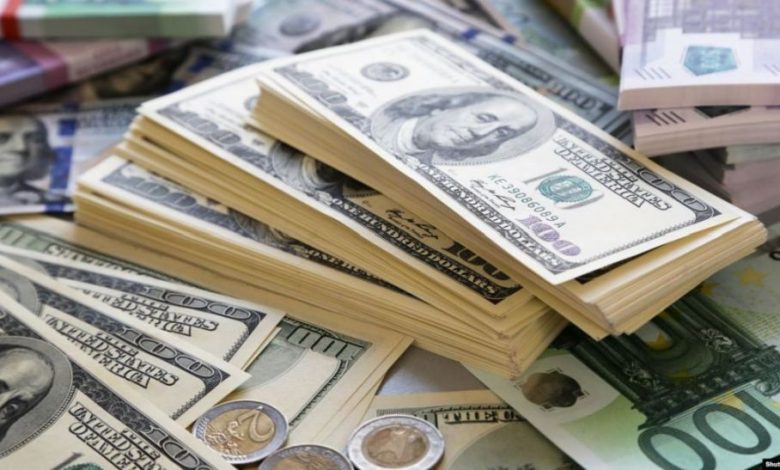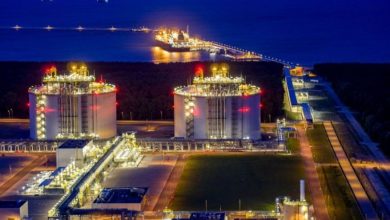Self-sufficient FEC
EU sanctions can slow down not only new projects in the oil and gas industry in Russia, but also the modernization of existing enterprises.
On July 25, the European Union countries instructed the European Commission to prepare the final version of the draft sanctions that the EU may impose on certain sectors of the Russian economy. In addition to the banking sector and the defense industry, European plans also include technological sanctions against the fuel and energy complex of Russia. The day before, the project was discussed in Brussels at the level of official representatives of these countries in the EU.
In the Russian oil and gas complex, the share of imported equipment in terms of raw material production reaches 24%, and in projects on the offshore or oceanic shelf – almost 100%. As the newspaper Vedomosti reported last Tuesday, these data from the Russian Ministry of Energy were presented at a meeting of the presidential commission on the development of the fuel and energy complex, which took place in early June. At it, by the way, the government was instructed to prepare by November 1 a program to reduce the dependence of the Russian energy sector on imports.
Possible EU sanctions may affect, on the one hand, the direct supply of foreign equipment to Russia, and on the other, the commercial access of Russian oil and gas companies to relevant Western technologies. Or both.
Sakhalin. Russia’s first liquefied natural gas plant (Sakhalin-2 project). The share of imported equipment in this segment of the Russian fuel and energy complex is still almost 100%.
Judging by the statements of the EU representatives, it is more about access to technology, says oil and gas analyst at Alfa Bank Alexander Kornilov. “But it’s hard to imagine that the restrictions would not affect the supply of equipment, especially for new projects.”
Most likely, the restrictions can affect both the supply of equipment and the provision of high-tech services, agrees Andrei Polishchuk, an oil and gas industry analyst with the Austrian Raiffeisen bank in Moscow: “And this is quite critical for Russian companies that use a lot of foreign equipment both in production and in processing. ”
The EU draft sanctions decision, which was discussed in Brussels last Thursday, according to the British newspaper Financial Times, explicitly indicated three areas: deep-sea drilling, exploration on the Arctic shelf, as well as the development of shale oil deposits. At the same time, the British newspaper noted, in the option presented for discussion, projects for the extraction of natural gas in Russia were no longer mentioned, although earlier versions referred to this.
If the modernization of the Russian refineries launched due to sanctions is frozen or postponed, this will certainly affect the volume of gasoline production in the country. They will not contract, but they will not grow either.
All three of these areas relate specifically to new projects, without actually affecting (at least at the current stage of discussion) the current production at traditional fields. However, the operating life of any of them is limited, and production at the “mature” fields of Western Siberia or the Volga-Ural region is already being reduced, Alexander Kornilov recalls: “The idea of developing new, unconventional fields comes from the need to gradually replace the natural decline in production already being developed.”
For the current production at traditional fields, the supply of new foreign equipment is not so critical – the existing one will still work quite well, adds Andrey Polishchuk. However, to maintain production at them, and even more so to new expansion, which Russian companies are striving for, both new equipment and new technologies are needed. “And if such services and new equipment are not enough, the decline in production at mature fields will only accelerate, and the development of new ones will have to wait longer than is expected.”
According to the same data of the Ministry of Energy of Russia, the share of imported equipment in the oil and gas processing industries in the country reaches 35%, and in the production of liquefied natural gas – almost 100%. And while it cannot be ruled out that European sanctions, if imposed, may to some extent affect the supply of equipment for these industries. First of all – for oil refineries.
One of the three discussed areas of possible EU technological sanctions against the Russian fuel and energy complex is deepwater drilling. XOne of the three discussed areas of possible EU technological sanctions against the Russian fuel and energy complex is deepwater drilling.
Today, many of them are being modernized, which also requires new foreign equipment, continues Andrey Polishchuk. By increasing the depth of oil refining, companies will be able to expand the production of light oil products – gasoline or diesel fuel – and reduce the production of darker ones. First of all, fuel oil, which is mainly exported today.
“If the modernization of the refinery started due to sanctions is frozen or postponed, this will certainly affect the volume of gasoline production in the country,” Polishchuk says. “They will not contract, but they will not grow either.”
Guenther Oettinger, head of the European Commission’s energy department, has repeatedly stated that possible European sanctions should not affect the current supply of Russian energy. In 2013, according to the estimates of the European Commission itself, Russia’s share in total oil imports by the EU countries amounted to one third, and 39% in gas imports from non-EU countries.
The very idea of developing new, unconventional deposits proceeds from the need to gradually replace the natural decline in production with existing ones. However, if we do not mean pipelines, but sea transportation of oil, oil products or liquefied gas, then any technological sanctions are unlikely to affect them at all – simply because of the structure of the global market for these transportation. Not a single industrialized country has its own full-size marine fleet for transporting energy, recalls the director general of the Russian agency InfraNews, specializing in logistics, Alexey Bezborodov.
According to him, the transportation of oil, oil products and liquefied gas is carried out by vessels that do not fly under European or American flags. They were built in China, Japan or South Korea, and for these ships partly German technology is used and partly German and Japanese money, Bezborodov continues. “And if, for example, Russia still has such a fleet – Sovcomflot, then it also consists of 80% of the ships built in Japan and South Korea.”
On Friday, instructing the European Commission to prepare a draft final document on the introduction of EU sanctions against certain sectors of the Russian economy, representatives of the EU countries again noted that the decision itself whether such sanctions would be imposed has not yet been adopted. Discussions will continue next week.
The European Union announced new sanctions in connection with the crisis in Ukraine
The European Union has unveiled a new list of senior Russian officials who are subject to sanctions related to Russia’s role in the conflict in eastern Ukraine. Among these names are Director of the FSB of Russia Alexander Bortnikov, director of the Foreign Intelligence Service Mikhail Fradkov, head of Chechnya Ramzan Kadyrov, chairman of the Security Council Nikolai Patrushev, deputy head of the Security Council Rashid Nurgaliev, member of the Security Council Boris Gryzlov, head of the 5th Directorate of the FSB Sergey Beseda, deputy State Duma Mikhail Degtyarev, Governor of the Krasnodar Territory Alexander Tkachev.
Sanctions were also announced against the “head of the mobilization department” of the military department of the so-called “Donetsk People’s Republic” Pavel Gubarev, his wife and several other leaders of the DPR.
Both separatist organizations – the so-called “people’s republics” – Donetsk and Lugansk, are now sanctioned.
All names and organizations named in the list are suspected of undermining the territorial integrity of Ukraine.
From now on, there are a total of 87 individuals and 20 legal entities in the EU sanctions list. All of them are prohibited from entering the EU, their assets abroad, if any, will be frozen. European businessmen are prohibited from doing business with individuals and companies listed.
On Friday, July 25, European Union countries instructed the European Commission to prepare the final version of the draft sanctions that the EU may impose on certain sectors of the Russian economy. In addition to the banking sector and the defense industry, European plans also include technological sanctions against the fuel and energy complex of Russia.
This post is also available in:
 English
English  Русский (Russian)
Русский (Russian)





